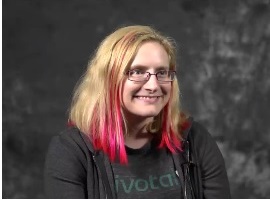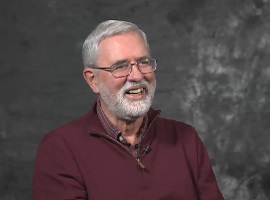InfoQ Homepage QCon Software Development Conference Content on InfoQ
-
Bridget Kromhout on Cloud Foundry
Bridget Kromhout explains Cloud Foundry, how to run or use it, the tools Cloud Foundry provides for automation, and much more.

-
Jon Moore on Hypermedia APIs and Distributed Monotonic Clocks
The interview with Jon Moore begins with a discussion on the relevance of Hypermedia APIs in the context of micro-services as well as the impact of HTTP 2.0 on APIs in general.The second half of the interview focuses on event causality in distributed systems and Moore's research on the application of population protocols for better clock synchronization.

-
Adam Wick on Security, Formal Methods, Types, Unikernels, HaLVM, DRM
Adam Wick talks about software security, research into formal methods and randomisation as well as documentation and types to help write secure software, HalVM and other Unikernels, DRM.

-
Understanding Complex Software Systems by Embracing Chaos
Modern software systems are complex and chaotic. Requirements, employee counts, and production environments change quickly. Yet the software produced under these circumstances must be understandable as well as useful. Matt Ranney, an architect at Uber, argues that to understand these complex systems you must embrace chaos, rather than run from it. You must also accept limits to our understanding.

-
Rick Hudson on Garbage Collection in Go
Rick Hudson talks to Charles Humble about the evolution of Go’s garbage collector, comparing 1.5 to the forthcoming 1.6 release, and also touching on plans for 1.7.

-
Bryan Cantrill on Containers, Linux, Triton and Illumos, Virtualization, Node.js
Bryan Cantrill explains Triton (a way to run secure Linux containers on bare metal), the history of DTrace and ZFS and their (lack of) adoption on Linux, the relevance of OS R&D, Unikernels and more.

-
Chris Richardson on Functional Programming in Scala and Java, Event Sourcing
Chris Richardson explains the appeal of Scala, functional programming in Java and other languages, the basics of Event Sourcing, and his perspective on the state of the Java ecosystem.

-
Michael Bryzek on Handling Microservices in the Real World
Microservices have been a trending topic for some time now and while we talked a lot about concepts in the past there are more and more real-life experiences to draw on now. In this interview, Michael Bryzek, co-founder and former CTO of Gilt, shares some of his experience working with microservices including how we should design our architectures and APIs to avoid ending up in a dependency hell.

-
Tom Limoncelli on DevOps and Automation
Tom Limoncelli explains the reasons for DevOps, how to choose which steps to automate and which not, enabling continuous deployment, and much more.

-
Kolton Andrus on Breaking Things at Netflix
Kolton Andrus is working as "chaos engineer" at Netflix which means he is getting paid for breaking things in production. We are talking with about how to improve overall system quality by injecting failures in production systems, about the idea of "anti-fragility" in the context of software and about how engineering teams of all layers can benefit from a failure injection infrastructure.

-
Maurice Naftalin on Java Lambdas, Java 8 Streams, Parallelism
Maurice Naftalin explains uses for lambdas in Java, how streams work in in Java 8, parallel streams and threading, side effects, and much more.

-
Sylvia Isler on Migrating to and Operating Microservices
Everybody has been talking about microservices for at least two years now and there are a lot of companies trying to migrate to that promising new architecture. We spoke to Sylvia Isler - VP of architecture at VMTurbo - about the reasons to migrate to microservices and how to turn an existing monolith into a distributed, resilient services landscape.
